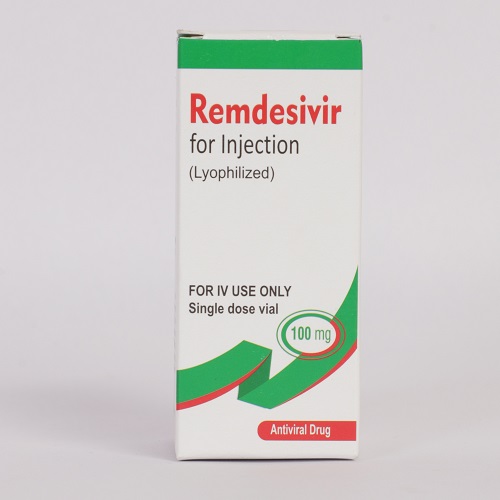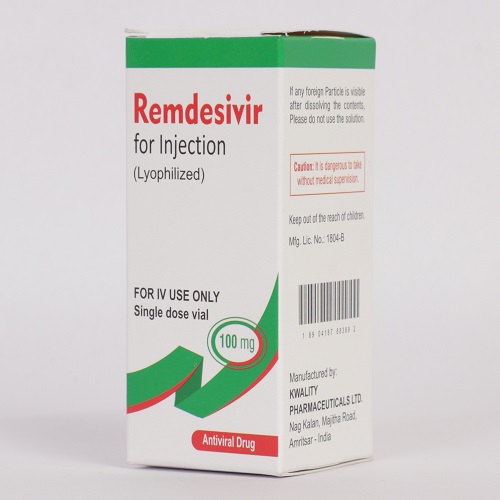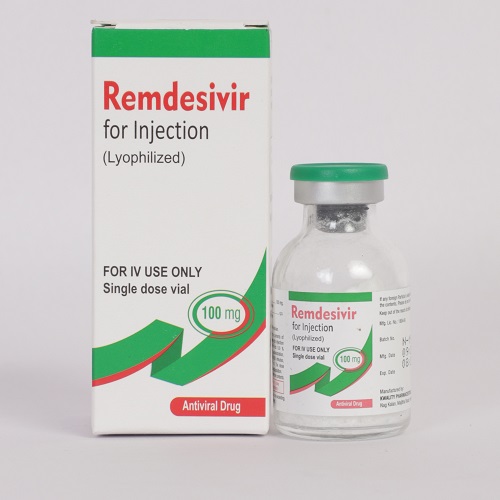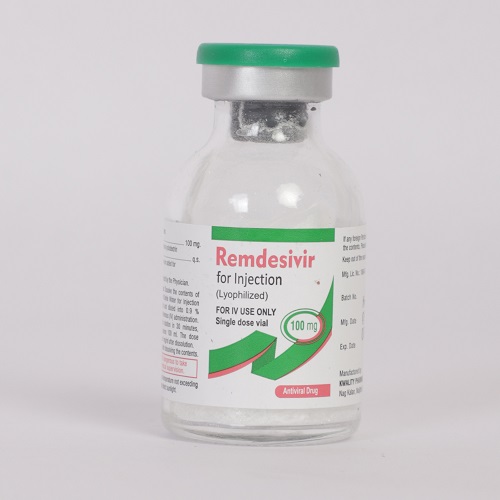REMDESIVIR -100MG





Remdesivir is an antiviral medication that targets a range of viruses. It was originally developed over a decade ago to treat hepatitis C and a cold-like virus called respiratory syncytial virus (RSV). Remdesivir wasn’t an effective treatment for either disease. But it showed promise against other viruses.
Researchers tested remdesivir in clinical trials during the Ebola outbreak. Other investigational medications worked better, but it was shown to be safe for patients. Studies in cells and animals suggested that remdesivir was effective against viruses in the coronavirus family, such as Middle East Respiratory Syndrome (MERS) and Severe Acute Respiratory Syndrome (SARS).
Remdesivir works by interrupting production of the virus. Coronaviruses have genomes made up ribonucleic acid (RNA). Remdesivir interferes with one of the key enzymes the virus needs to replicate RNA. This prevents the virus from multiplying.
Researchers began a randomized, controlled trial of the antiviral in February 2020 to test whether remdesivir could be used to treat SARS-CoV-2, the coronavirus that causes COVID-19. By April, early results indicated that remdesivir accelerated recovery for hospitalized patients with severe COVID-19. It became the first drug to receive emergency use authorization from the U.S. Food and Drug Administration (FDA) to treat people hospitalized with COVID-19.
Researchers tested remdesivir in clinical trials during the Ebola outbreak. Other investigational medications worked better, but it was shown to be safe for patients. Studies in cells and animals suggested that remdesivir was effective against viruses in the coronavirus family, such as Middle East Respiratory Syndrome (MERS) and Severe Acute Respiratory Syndrome (SARS).
Remdesivir works by interrupting production of the virus. Coronaviruses have genomes made up ribonucleic acid (RNA). Remdesivir interferes with one of the key enzymes the virus needs to replicate RNA. This prevents the virus from multiplying.
Researchers began a randomized, controlled trial of the antiviral in February 2020 to test whether remdesivir could be used to treat SARS-CoV-2, the coronavirus that causes COVID-19. By April, early results indicated that remdesivir accelerated recovery for hospitalized patients with severe COVID-19. It became the first drug to receive emergency use authorization from the U.S. Food and Drug Administration (FDA) to treat people hospitalized with COVID-19.